UC Berkeley is working hand-in-hand with PepsiCo, the campus beverage provider, to promote environmentally responsible practices while ensuring access to healthier options across campus. This effort is part of a broader commitment to sustainability that includes eliminating single-use plastics, reinforcing waste reduction efforts and promoting healthier food and beverage choices through the campus Food & Beverage Choices Policy.
Learn more about each initiaitve below.
Sustainability
Towards a Sustainable Campus: Eliminating Single-Use Plastics
PepsiCo has committed to supporting Berkeley's goal to eliminate non-essential, single-use plastics on campus.
What are single-use plastics?
Single-use product is defined as a product or item of packaging that is conventionally disposed of after a single use and is not sufficiently durable, washable, and intended for multiple refills of the original product allowing for multiple uses.
Single-use plastic product categories are defined as those used in office supplies, food service, retail, labs, facilities, promotional items/giveaways/swag, universal waste, e-waste and packaging.
Why are we doing this?
In April 2020, UC Berkeley committed to a single-use elimination goal for the campus community. With a focus on foodware, plastic bags and the spectrum of products and packaging used in campus academics, research, administration and events. This comprehensive target aims to eliminate all non-essential single-use plastic with viable alternatives by 2030. For more information on the commitment, you can see the goal’s language and press release.
Berkeley’s roadmap follows the UC Sustainable Practices Policy, which includes potential reporting obligations and timelines. The campus’s goal is to implement changes ahead of these deadlines.
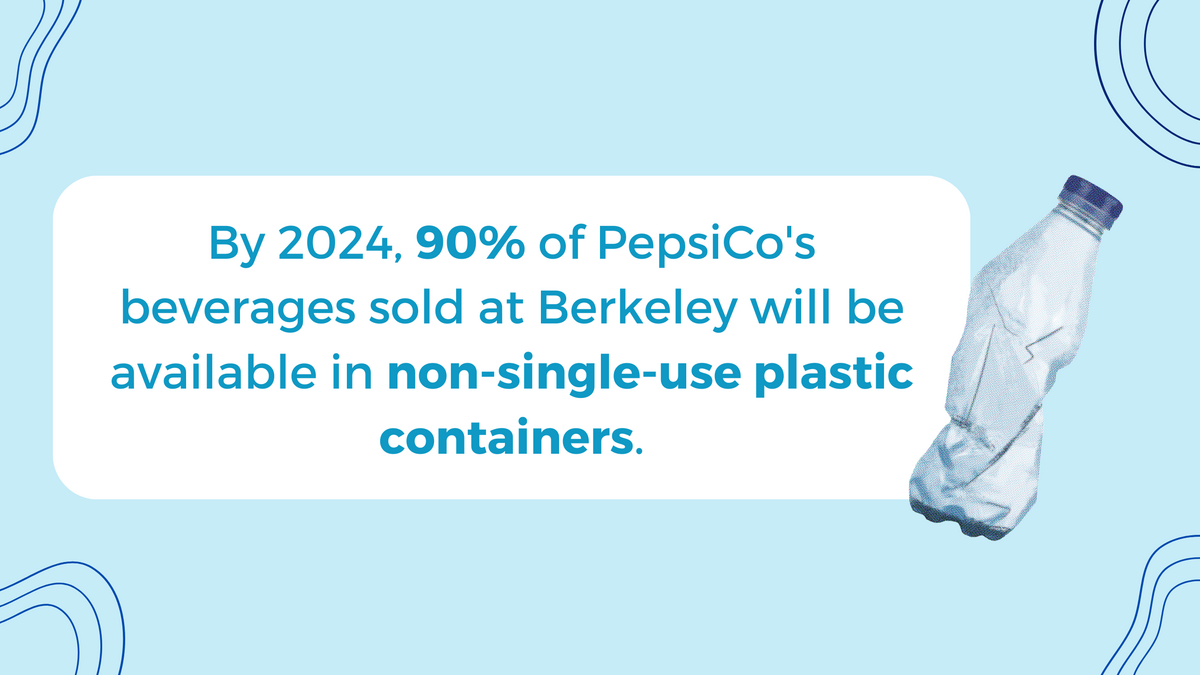

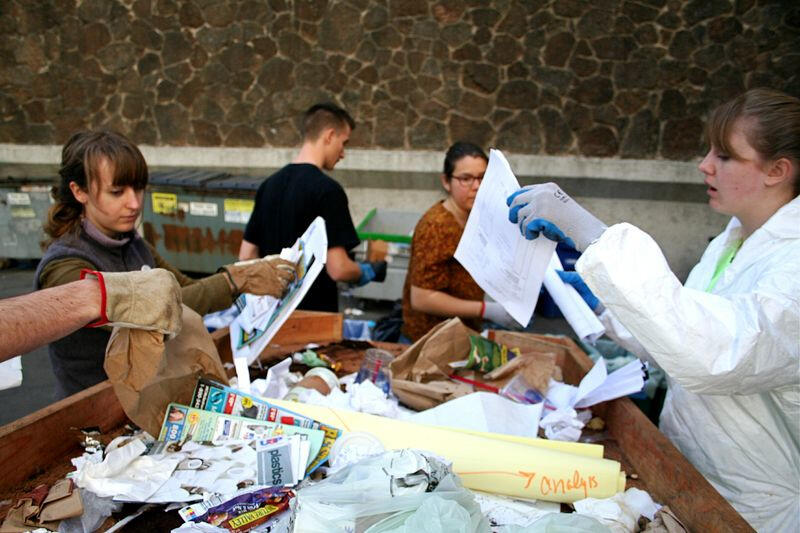
Reducing Waste on Campus
Cal Zero Waste manages over 25 tons of solid waste throughout campus daily (that's a lot!). Cal Zero Waste works with various campus entities and campus partners, like PepsiCo, to advance reducing, reusing, recycling and composting programs across campus.
Cal Athletics
In spring 2024, Cal SAFE, Cal Athletics and Cal Zero Waste teamed up to tackle waste-sorting issues at campus athletics facilities. Thanks to the PepsiCo Sustainability Fund, the campus was able to purchase additional Max-R bins to aid in waste diversion efforts.
Cal Performances
Zellerbach Hall is one of the most visited buildings on campus, with an estimated annual attendance of 125,000 visitors. As part of their project to "greenify" Zellerbach Hall, Cal Performances outfitted the lobby and mezzanine areas of Zellerbach with waste sorting bins to engage their vast audiences in UC Berkeley’s sustainability efforts.
Supporting Recycling and ReUse
California Memorial Stadium has introduced a reusable cup system, making it the first stadium in the Bay Area to eliminate single-use cups. This initiative is a collaboration with campus partners PepsiCo, Levy, Cal Zero Waste, and Cal Athletics using the r.world reusable cups to reduce the use of single-use plastics during sporting events. Fans attending Cal home football games can experience this sustainable change in action, promoting environmental responsibility while enjoying the game.
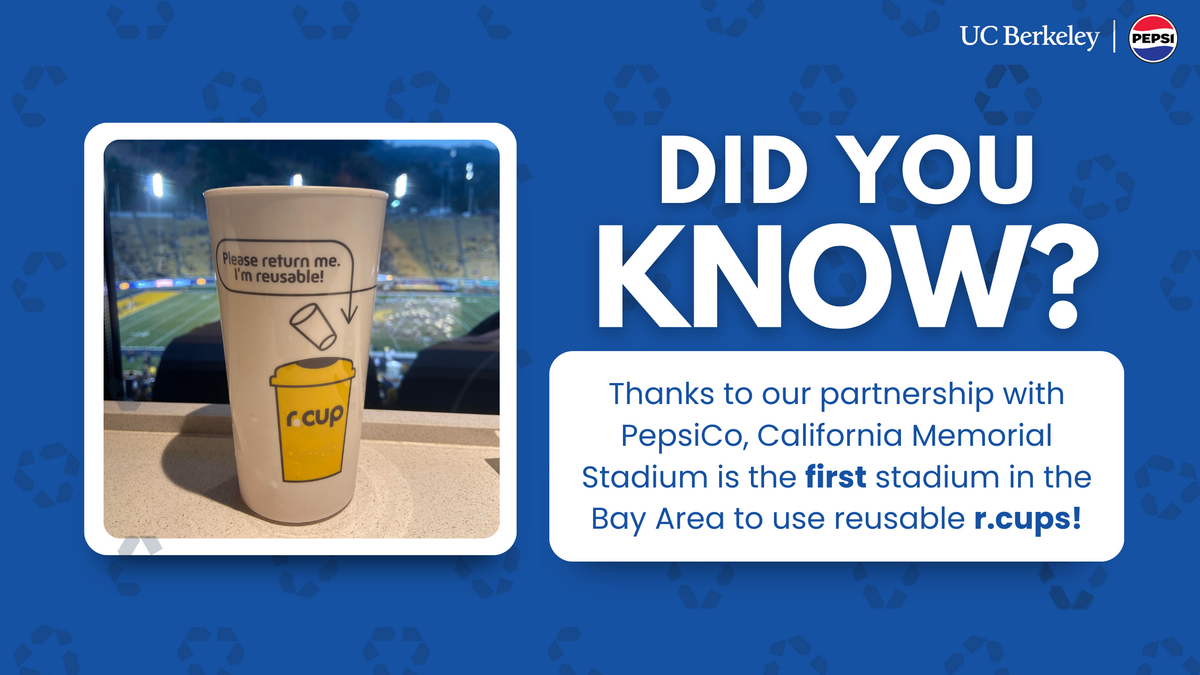
Health and Wellness
Fitting Into Campus Goals
The partnership will align with the campus’s health and wellness goals.
What is the UC Berkeley Food & Beverage Choices Policy?
UC Berkeley's Food and Beverage Choices Policy aims to make the healthy choice the easy choice by ensuring that nutritious food and beverage choices are available across campus.
This policy established nutrition standards for retail food service and markets, dining commons, vending machines, Athletic concessions, and University-sponsored meetings and events to ensure accessibility of whole and fresh foods, provide healthier alternatives to sugar-sweetened beverages, and engage positive communications promoting healthier choices. The policy aims to improve accessibility by having a variety of nutritious choices available, promoting these options, placing these options in easy-to-find locations, keeping the prices affordable, and including options and ingredients from various cuisines reflective of Berkeley’s cultural diversity.
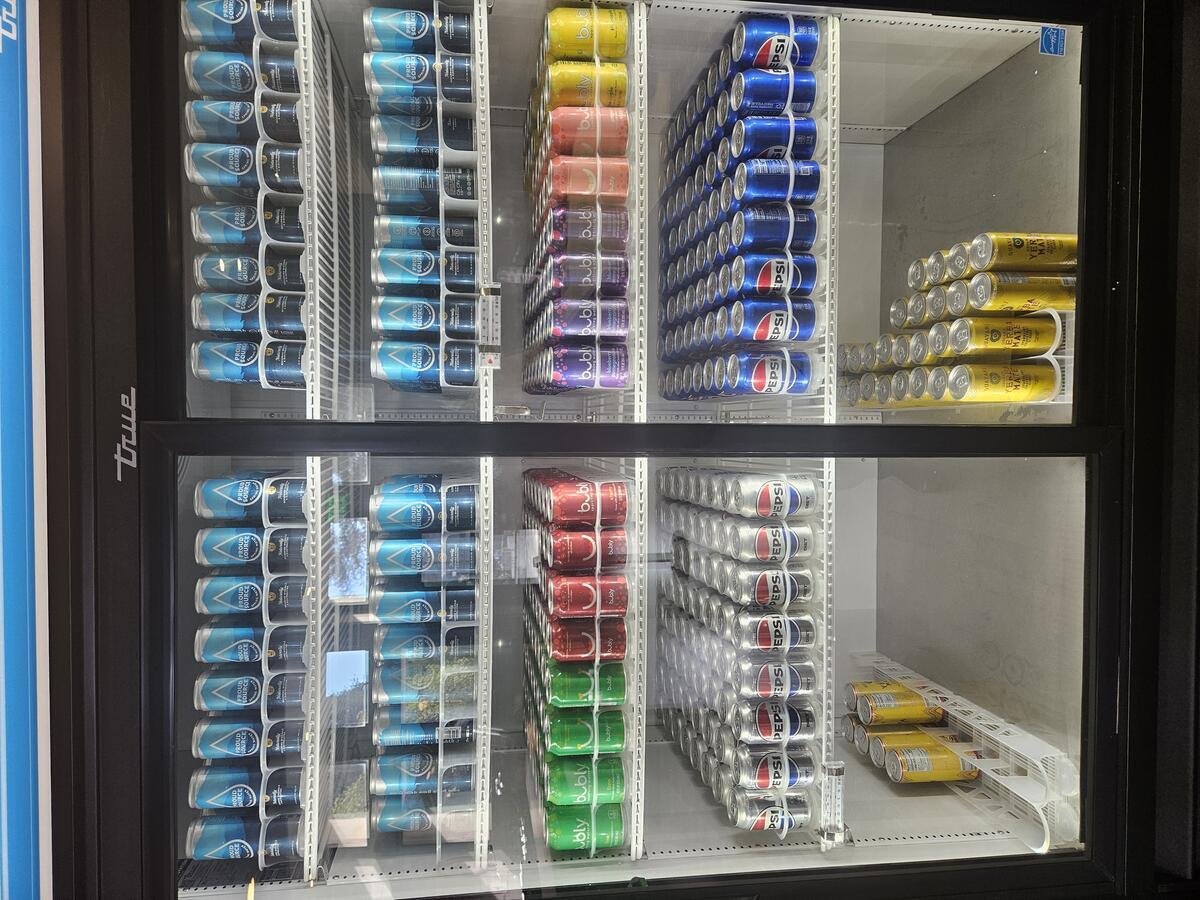
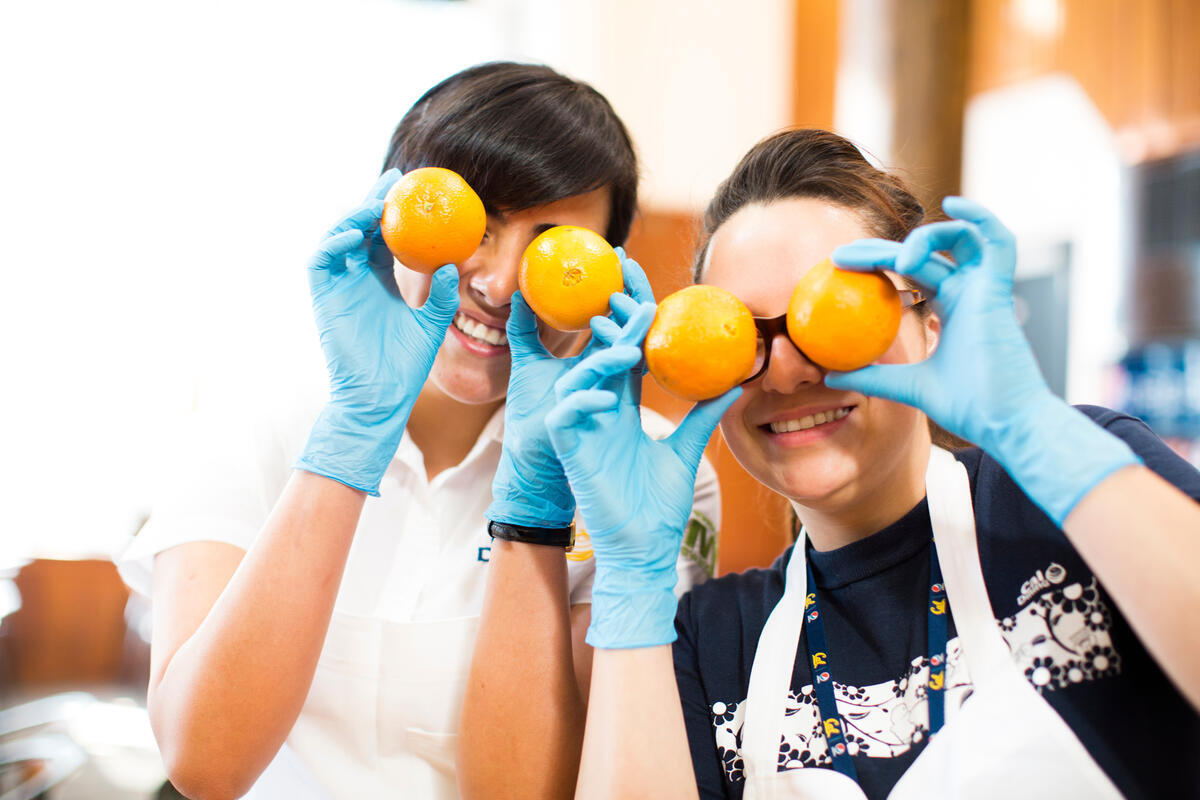
Which Standards Apply to Pepsi?
According to this policy, campus restaurants, retail markets, and vending machines must stock shelf space with "healthier beverages" at 70% or greater. Healthier beverages should be placed at eye level or the best selling locations and pricing should encourage the sale of healthier items. Examples of healthier beverages include water, sparkling water, and unsweetened tea. Beverages that do not meet the healthier standards are limited to 20 ounces. Drinks with added caffeine are limited to the GRAS (Generally Recognized as Safe) limit of added caffeine in soda, 71mg per 12 ounces.
Why Do We Have a Nutrition Policy?
Health education alone, in the absence of change to the food environment, doesn't always produce lasting behavioral change. A nutrition policy to make it easier to find healthy options on the Berkeley campus is one of the most effective environmental strategies to prevent certain types of chronic disease and improve the diet and health outcomes of the campus population. This policy will help to ensure that nutritious food and beverage choices are available in retail food service operations and markets, dining commons, vending machines, Athletic concessions, and University-sponsored meetings and events. This policy focuses on making the healthy choice the easy choice, rather than taking choices away. The aim is to give individuals a broader range of options from which to choose.
A Free and Sustainable Beverage Option
UC Berkeley has over 200 bottle fillers around campus. Filling your own bottle is good for your health, your wallet, and the planet. Learn more and find the refill station map on the Healthy Beverage Initiative page.
